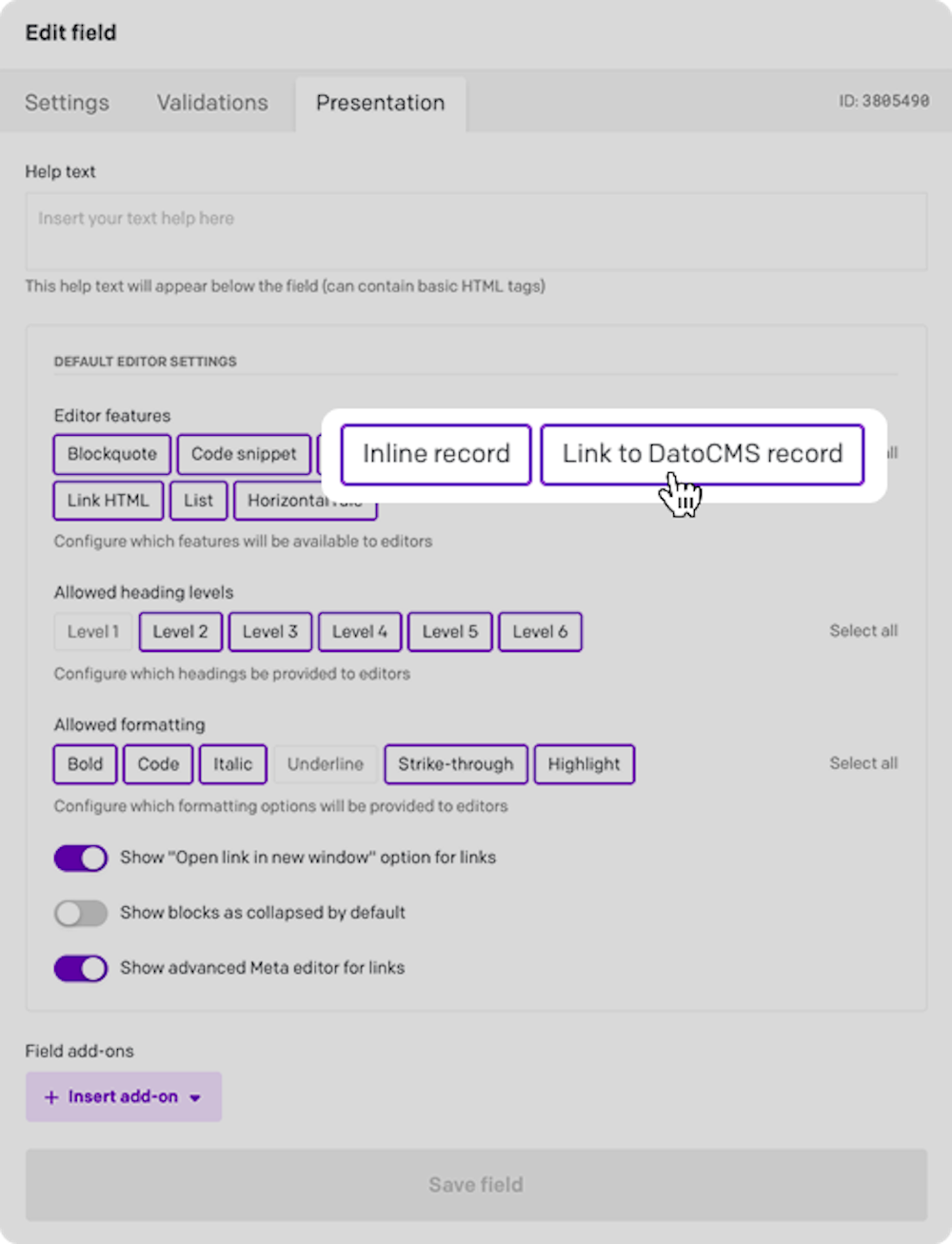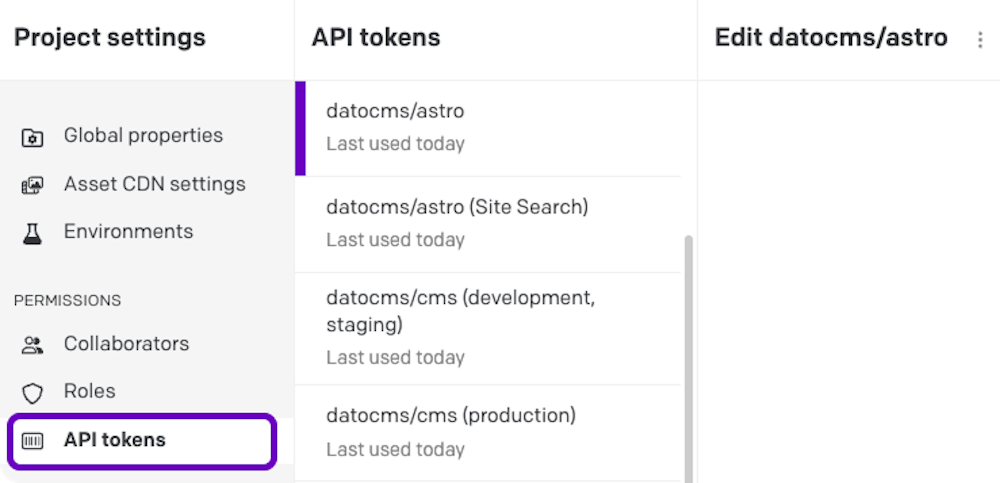Pre-filter linked records with saved filters
If you've ever had editors accidentally linking the wrong records because the list was too broad, this one's for you. When linking records, the list of available items can get overwhelming, especially when it includes outdated or irrelevant records that editors shouldn't pick (like records still in drafts).
To address this, we've introduced a way to pre-filter linked records with saved filters, letting you control exactly which records appear when editors browse items to link.
What's new?
The standard editors for Single and Multiple Link fields (compact and expanded) now include a new settings section. Here, you can pair each linked model with one of your saved shared filters, so editors only see the records that they should.
How do I enable it?
Head to the Presentation tab in your Link field settings. You'll see the new Applied Filters section right away: just pick a model, choose a filter, and you're done. If you need more filters, create more saved filters in the Content Area to configure another.
The only prerequisite is that you need at least one shared saved filter for the models you want to filter. Private filters aren't available here.


